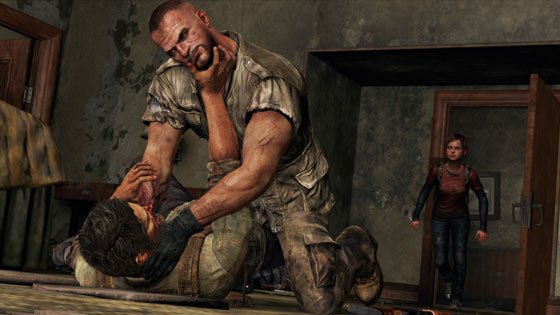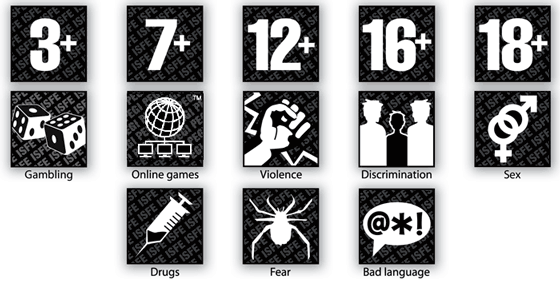The Pan-European Game Information (PEGI) games rating system becomes legally enforceable in the UK today. The system is based upon a series of age ratings including 12+, 16+ and 18+. Also the system uses symbols on game packaging to flag content that may offend certain people denoting content such as gambling, drugs and violence.
The previous British game rating system run by the BBFC is now defunct. This move to one Europe wide system was recommended to the government back in 2009 by The Byron Review into Safer Children in a Digital World. The main thrust of that report was that “having a dual classification system and two sets of symbols often made things confusing for the consumer”. Also PEGI ratings tended to be a little stricter than the BBFC ones.

The Last of Us
Interactive Software Federation of Europe describe the purpose of the PEGI system as follows; “The main purpose of PEGI is to provide information on whether the content of a game is suitable for a specific age group, in addition to indicating what content forms the basis for the classification. The age labelling is intended to be a recommendation on whether the game’s content is suitable for children, and not on the level of difficulty. The PEGI system has developed different symbols for the various age ratings and the content that forms the basis for the age rating”
Under the new PEGI system retailers selling 12, 16 or 18 rated titles to children under those respective ages can be prosecuted. Sellers found guilty of selling to underage customers face a maximum of 6 years imprisonment and a fine of £5,000. As the new system comes into effect Trading Standards Officers will “be working with all retailers over the next few months to help them manage the transition”.

As you can see from the symbols above, the PEGI system isn’t very complicated or hard to understand. The age ratings 3+ and 7+ are only there for recommendation and are not legally enforceable. The non-numerical symbols indicate what content of a particular game might cause concern to buyers. I thought online games were probably flagged because they sometimes require in game purchases or game tokens, however looking into the matter further reveals the online PEGI symbol denotes child safety online; “This icon may only be used by online gameplay providers who have committed to uphold certain standards aimed at making online gameplay safer for children. These include measures aimed at keeping gameplay free of illegal and offensive content and to protect the privacy of children when playing games online.” It’s not for safeguarding kids’ pocket money and parental wallets.













